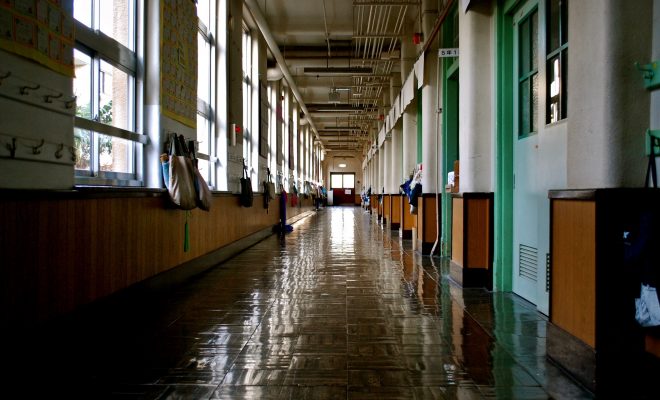What You Need to Know About the School to Prison Pipeline

When one student is causing a classroom disruption, the traditional way to address the issue has been removal – whether the removal is for five minutes, five days or permanently. Separating the “good” students and the “bad” ones has always seemed the fair, judicious approach. On an individual level this form of discipline may seem necessary to preserve the educational experience for others.
If all children came from homes that implemented a cause-and-effect approach to discipline, this might be the right answer. Unfortunately, an increasing number of students come from broken homes, or ones where parents have not the desire or time to discipline. For these students, removal from education is simply another form of abandonment and leads to the phenomenon called the “school-to-prison pipeline.”
When if comes to the school to prison pipeline, there are a lot of myths that surround it. Because of this, I decided to pen an article that discuss everything that you need to know this phenomenon. This will help you in your efforts to close the school to prison pipeline for good.
- Zero tolerance does not work. The term “zero tolerance” may sound like the best way to handle all offenses in public schools, but it really does a disservice to students. Not every infraction is a black and white issue and not every misstep by a student is a result of direct defiance. Often students with legitimate learning disabilities or social impairment are labeled as “disruptions” and removed from classroom settings under the guise of preserving the learning experience for other, “better” students. I suppose there is an argument to be made for protecting straight-and-narrow students from the sins of others, but at what cost?
- The numbers represent a modern-day segregation. An estimated 40 percent of all students that are expelled from U.S. schools are black, making black students over three times more likely to face suspension than their white peers. When you add in Latino numbers, 70 percent of all in-school arrests are black or Latino students. If you want to see the correlation between these school-age statistics and lifetime numbers, consider this: 61 percent of the incarcerated population are black or Latino – despite the fact that these groups only represent 30 percent of the U.S. population. Nearly 68 percent of all men in federal prison never earned a high school diploma. The fact that the U.S. has the highest
- School resource officers exacerbate the problem. High profile instances of school violence in recent years have led to a higher presence of law enforcement officers in public schools, often politely labeled as “resource officers” or a similarly vague term. Of course the presence of guns and other immediate danger items in schools are cause for arrest, or at least temporary removal of the student, but the American Civil Liberties Union reports that children as young as 5 throwing tantrums have been removed in handcuffs by these officers. Rather than addressing the heart of the individual problems, it is easier for public schools to weed out troublesome students under the umbrella of protecting the greater good. Convenience triumphs over finding actual solutions.
- The school to prison pipeline costs a lot of money. People who fall outside this fringe group of perceived misfits may wonder why the school-to-prison pipeline should matter to them. Outside of caring about the quality of life for other individuals, it matters in more tangible ways. Each federal prisoner costs taxpayers $28,284 per year, which is about $77 per day. That’s a measurable cost. What isn’t measurable is the indirect impact those incarcerations have on the economy in terms of those prisoners not contributing to the work force.
- Children often model what they see. In cases when they grow up watching criminal behavior, the odds are stacked against them when it comes to breaking out of the family mold. While parents have an extreme influence children, so does the K-12 education experience. More and more educators are getting behind the idea that removal from classroom settings because of discipline issues is an antiquated practice and one that does more harm than good to students.
- The school-to-prison pipeline has a long way to go to resemble any sort of improvement. It is estimated that black K-12 students are three times more likely to face suspension from school than their white peers. When that fact is linked to the statistics listed above, it becomes clear that removal as a form of “teaching a lesson” does not actually educate anyone. Only in homes where parents hold their children accountable can a suspension actually make a positive difference.
Did we miss any? Let us know in the comments section below.




